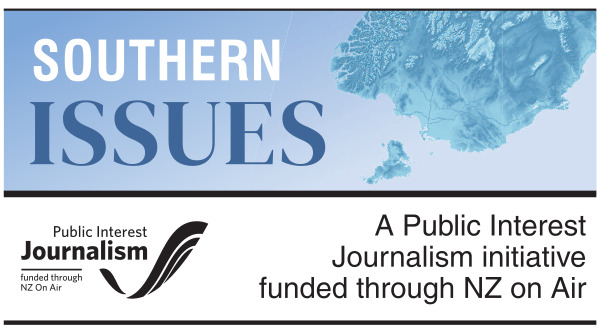
Aaron Hawkins, elected in 2019 as New Zealand’s first Green Party mayor, was unseated by first-term councillor Jules Radich in a landslide on Saturday.
Mr Radich received 20,905 votes to Mr Hawkins’ 10,774. It made him the city’s first one-term mayor since Russell Calvert left office in 1968.
Describing the result as devastating on Saturday, yesterday he said grief was a process and he was working through it.

It was part of a trend that saw a swing to the right across much of the country, and several incumbents either defeated or in races still too close to call.
"More than it being about political ideology I think [what] we’ve seen around the country is a pushback against the status quo," Mr Hawkins said.
"I’m proud of the fact we ran a positive campaign. We were up against some fairly relentless negativity and campaigns that were built around disinformation and misrepresenting the work of council, and that’s really hard to fight against."
His tenure in the mayoral office was, at times, a tumultuous one. He picked up wins with a focus on climate change policies and the vote on making George St one-way, as well as the decision to reverse a previous vote to join Three Waters advocacy group Communities 4 Local Democracy.
But the impacts of Covid-19, pushback against Three Waters reform, and a cooling in the relationship between the council and mana whenua were also keenly felt.
Mr Radich told the Otago Daily Times he felt Mr Hawkins had failed to take people along with him on issues.
Mr Hawkins found that comment "quite remarkable", and said he had no regrets.
"Leadership means doing what is in the best interests of the city in the long term, even though it may not be politically popular in the short term," he said.
The make-up of the new council was more conservative and he felt it would be a real challenge to maintain much of the work done in the past three years.
Mr Hawkins stood for the mayoralty only. He did not regret that decision, believing it would be unfair for the departing mayor to stick around when there had been a mandate for change.
The fact he had won election as the country’s first Green Party mayor was remarkable in the first place, he said.
"When you’re involved in environmental politics and progressive politics, you get pretty used to losing. Particularly in the Green kaupapa, by numbers, we are a minority political movement on the margins of our political system."
He did not rule out a tilt for the Green Party nomination in Dunedin at next year’s general election, but was focusing on the short term for now.
"I didn’t invest a lot of time into thinking about what else I might do up until yesterday [Saturday] afternoon, so I’m still thinking about what that looks like.
"I certainly have no intention to leave town."
He was proud his council had rejected austerity measures and continued to invest in the city and its infrastructure, particularly during the pandemic.
The controversial George St makeover was also a source of pride.
"It will be a significant civic asset and that is something that has been talked about for decades if not generations, and I’m proud of the fact we built the political support to make that a reality."
The council had, in the past term, resourced work to make good on aspirations around climate change and Treaty of Waitangi obligations.
"I hope the incoming council see the value in maintaining that work because it is incredibly important to the long-term future of our city," Mr Hawkins said.











